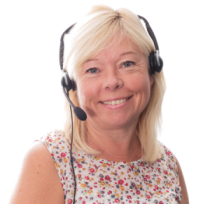One-to-one with Julie Rogers
Q. How did you first get involved with sports?
JR: I was really sporty when I was little, but when I was about nine years old I lost confidence because I felt I couldn’t participate with the other kids at my school. As I got a bit older, though, I wanted to get back into sport. I tried a few different things and eventually decided I wanted to try out disability sports. I started playing sitting volleyball regularly and everything went from there.
Q. Has sport always been an integral part of your life?
JR: Yes, we’re a very sporty family, my dad is a mixed martial arts coach and I’m from a family of keen rugby players. My family encouraged me to take up sport and it’s something I’ve always loved.
Q. Has there been any particular person or organisation which was key to your development in sport?
JR: My dad, he’s brilliant. He’s always motivated me which helped me to believe I could do anything I put my mind to. Growing up I knew I could join in everything my brother did.
Q. You switched to athletics in 2013 – why was that? Was it difficult / any regrets?
JR: I’ve always been keen to take up new challenges so originally I just wanted to try something different and athletics is a completely different environment to sitting volleyball. For a while I was doing both athletics and sitting volleyball but I found that I preferred athletics so I made that my priority. I don’t have any regrets, sitting volleyball is a great sport and it took me to the Paralympics but my real passion is for athletics.
Q. What’s been your biggest achievement to date?
JR: In sitting volleyball it has to be going to the Paralympics, I was only 13 which made me the second-youngest competitor at the games, and I missed out on being the youngest by only a month! Within athletics my biggest achievement has been representing Great Britain at the world juniors, I was really thankful to get picked so early in my athletics career.
Q. What goes through your head when you’re competing?
JR: It can be nerve-racking sometimes, especially when you’re in an unfamiliar environment, but during a competition I just try to stay focused and concentrate on giving my best performance.
Q. What are your hopes for this year?
JR: This year I want to transition from training to performance and hopefully be selected for Great Britain at either junior or senior level.
Q. What are your long-term goals?
JR: My long term goal is to compete in the Paralympics for athletics. Rio 2016 is definitely in my sights and I think it’s achievable so I’ll be working towards that. Even if it doesn’t happen next year I know I’ll get there when I’m ready.
Q. How would you describe the overall influence of sport in your life?
JR: Sport has had such a massive influence on my life and has had a huge impact on my confidence. I was bullied when I was younger and even now it’s difficult to escape some of the stigma surrounding disabilities, but in a disability sport there is no discrimination. I’m surrounded by people who have the same ideas, experiences and viewpoints and I feel part of something great.
Q. What do you like to do when you aren’t competing?
JR: I’m pretty much just your typical 16-year-old, I like the usual things like socialising and chilling out – as boring as that sounds! I love listening to music and reading too, and my favourite sport to watch when I’m not competing is rugby.
Q. What advice would you give to potential Paralympians of the future?
JR: Just train as hard as possible and make sure you’re doing all you can to achieve what you want to achieve. You’ll need to understand that competition is high but when you’re doing something you love it doesn’t matter.

